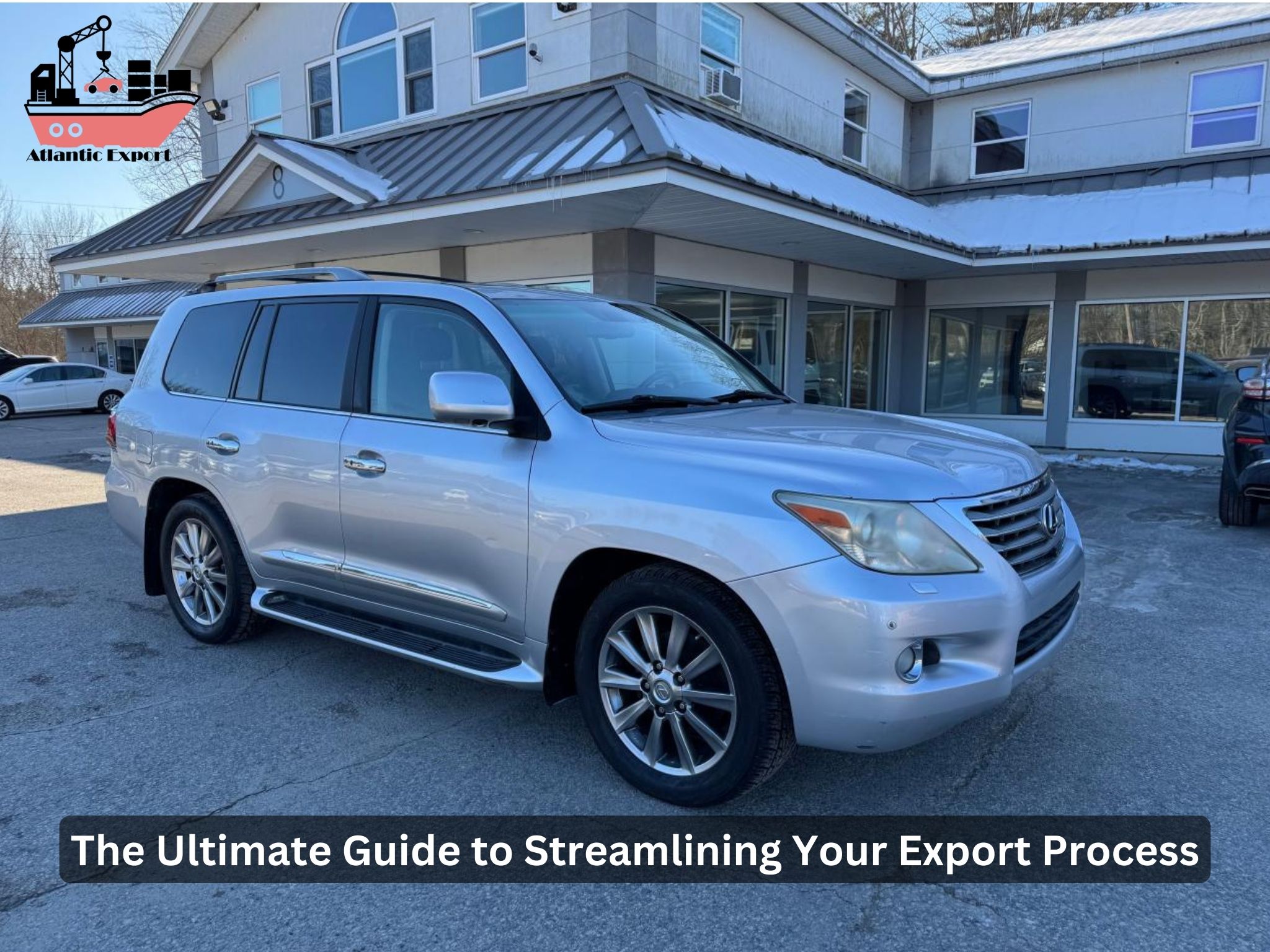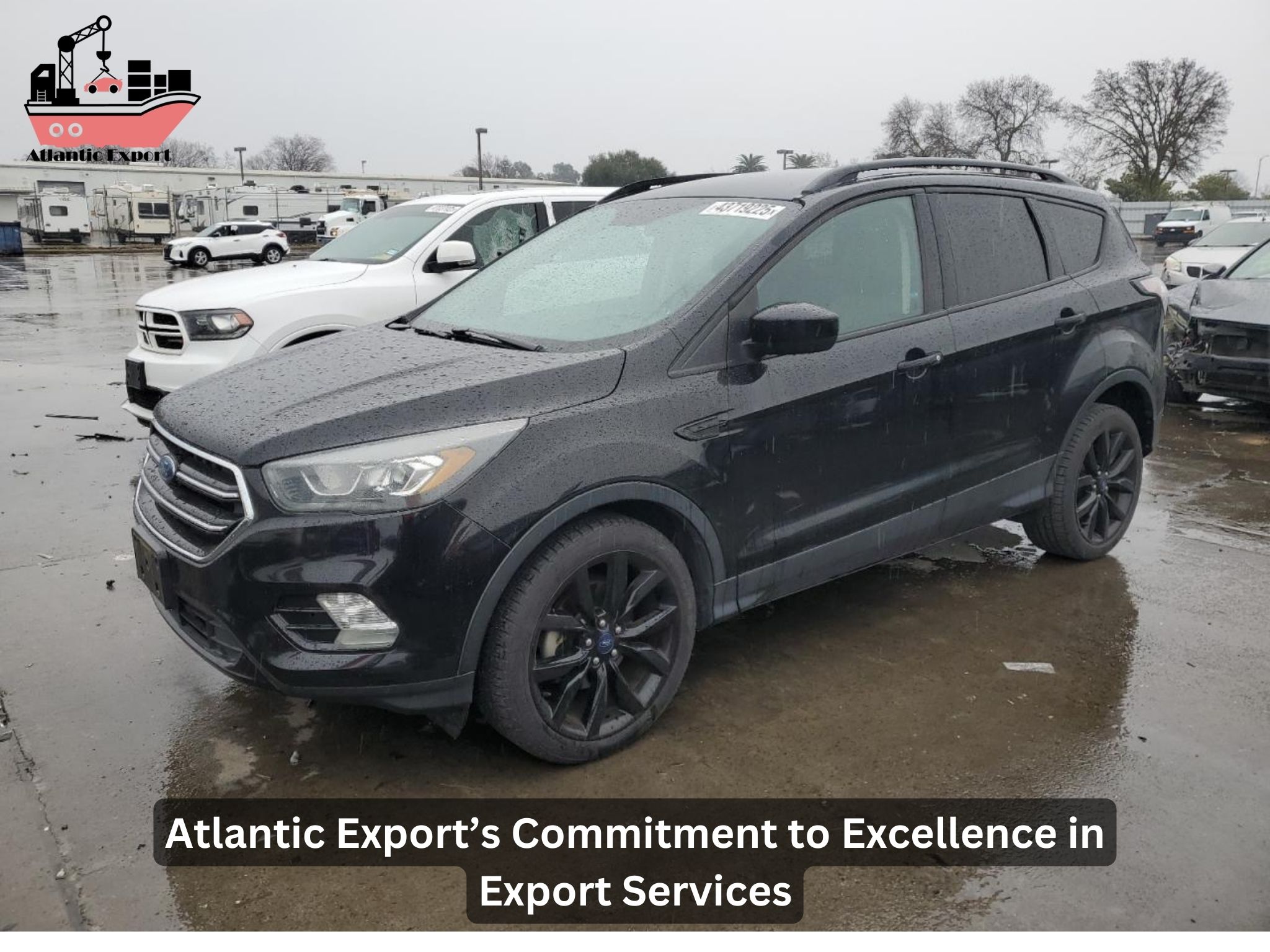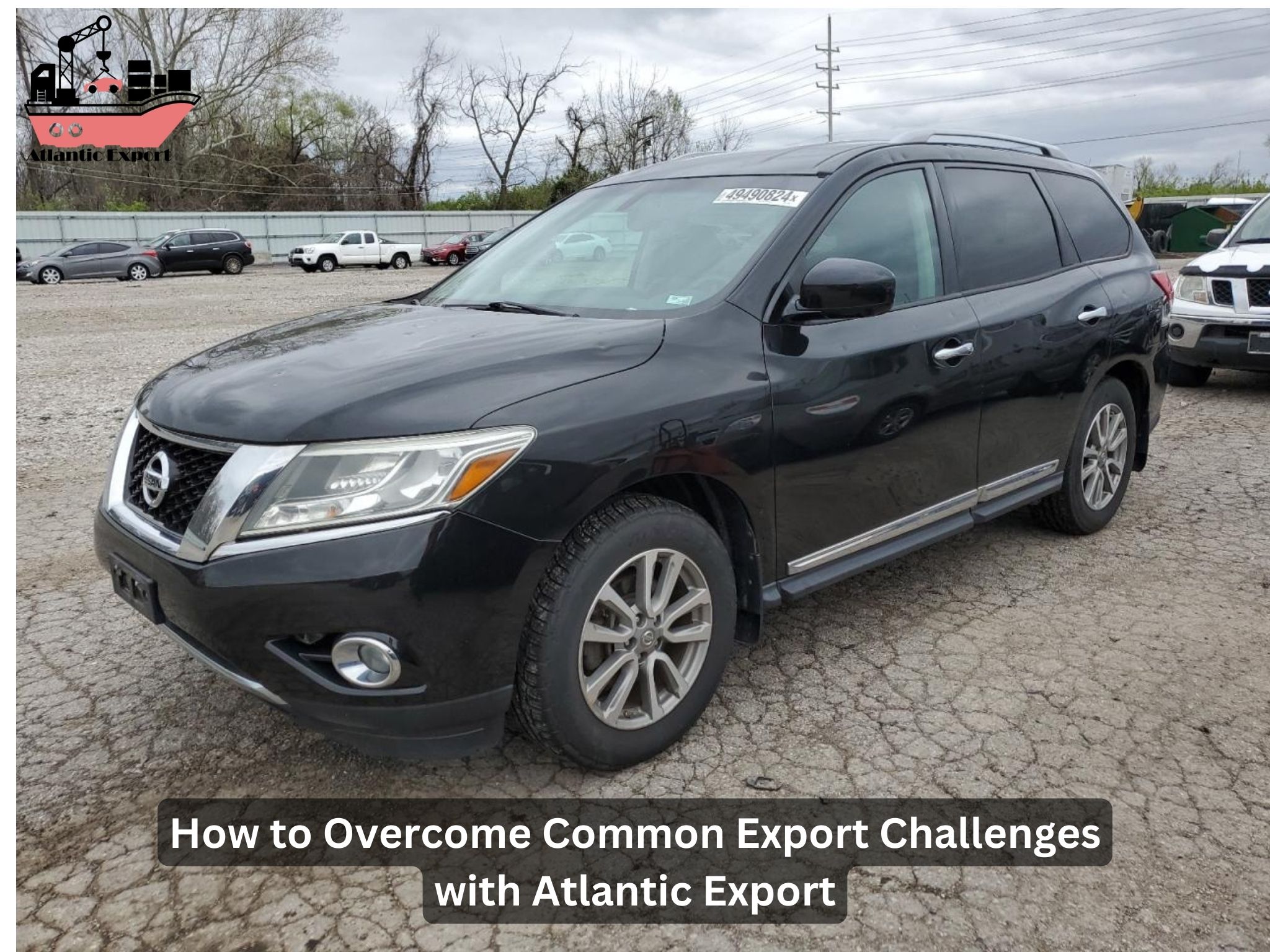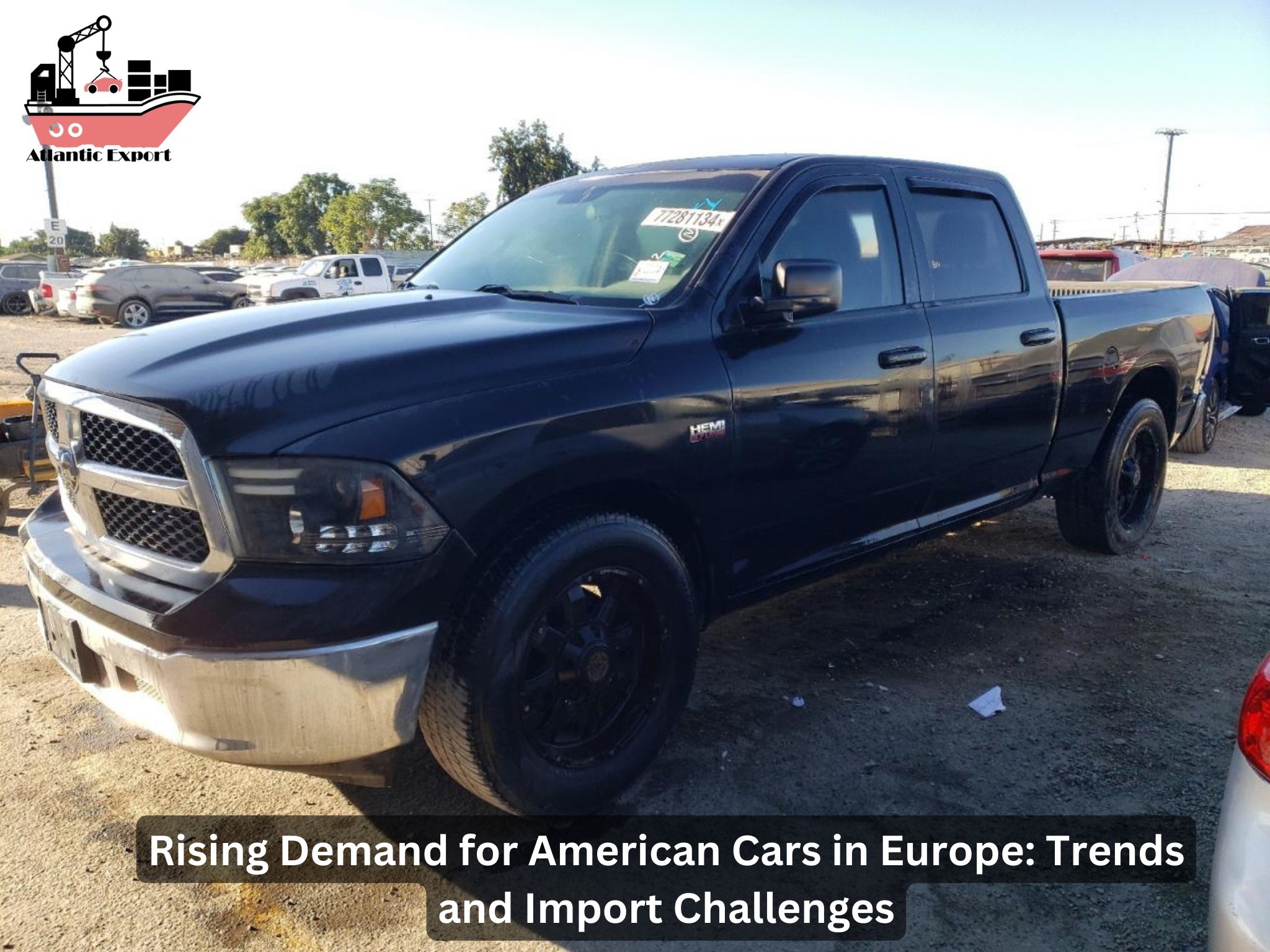In today’s global trade environment, ensuring a smooth export process is essential for businesses aiming to expand internationally. With numerous customs regulations, documentation requirements, and logistical challenges, companies must adopt the best practices and tools to improve efficiency and minimize delays. This comprehensive guide will walk you through the essential steps to streamline your export process, helping you optimize operations, reduce errors, and enhance compliance.
Understanding the Export Process
The export process encompasses multiple stages, from preparing goods for shipment to customs clearance and final delivery. A well-structured export strategy ensures smooth logistics management and compliance with international trade regulations. Here are the key components:
1. Planning and Market Research
- Identify target markets and potential customers.
- Analyze trade agreements and customs regulations.
- Assess competitive landscape and pricing strategies.
- Establish strong partnerships with suppliers, freight forwarders, and customs brokers.
2. Export Documentation Management
Efficient documentation management is crucial for avoiding compliance issues and potential delays. Key documents include:
- Commercial Invoices – Essential for customs clearance.
- Bill of Lading – Serves as proof of shipment and ownership.
- Certificates of Origin – Required for duty exemptions under certain trade agreements.
- Import/Export Licenses – Mandated by customs authorities for specific products.
- Packing Lists and Insurance Documents – Ensure cargo safety and legal coverage.
3. Compliance with Customs Regulations
Strict adherence to customs laws minimizes the risk of penalties and shipment holds. Steps include:
- Engaging customs brokers for efficient customs clearance.
- Leveraging digital solutions for real-time tracking of import/export operations.
- Conducting regular audits to maintain compliance with global trade regulations.
- Classifying goods using the Harmonized System (HS) codes to determine applicable tariffs and taxes.
4. Freight and Logistics Management
Choosing the right transportation mode impacts costs and delivery timelines. Consider the following:
- Sea Freight – Cost-effective for bulk shipments.
- Air Freight – Ideal for high-value, time-sensitive goods.
- Road and Rail Freight – Best for regional exports.
- Freight Forwarders – Essential for handling logistical challenges.
5. Technology and Automation in Exporting
Adopting software solutions improves process efficiency and error reduction. Key tools include:
- Import/Export Documentation Management Systems – Centralizes and automates paperwork.
- Data Analytics Platforms – Offers valuable insights into supply chain optimization.
- Project Management Tools like JIRA and Asana for task organization.
- CSV File Integration for structured data handling.
Navigating Customs Clearance and Regulations
The Role of Customs Brokers in Efficient Exporting
Engaging a customs broker is a crucial step in simplifying the customs clearance process. These professionals have deep expertise in customs regulations and can help businesses navigate complex requirements efficiently.
Essential Customs Clearance Documents
To ensure efficient customs clearance, businesses must prepare and submit the following key documents:
- Commercial Invoices – Provide a detailed record of the goods being exported.
- Bill of Lading – Serves as a shipping contract between the exporter and the carrier.
- Certificates of Origin – Certifies the country of production of the exported goods.
- Packing Lists – Lists the contents of the shipment for customs inspection.
- Import/Export Documentation Management Systems – Digital solutions like CSV files and automated platforms can simplify the process.
Customs Regulations and Compliance Requirements
Adhering to customs regulations is mandatory for all international trade operations. Regulatory compliance ensures that goods can move freely across borders without delays or penalties. Trade agreements and harmonized system codes play a crucial role in determining tariffs, value-added tax (VAT), and goods and services tax (GST).
Common Export Challenges and Solutions
Despite strategic planning, exporters often encounter roadblocks. Here’s how to tackle them:
Challenge: Customs Clearance Delays
Solution: Work with a trusted customs broker, ensure accurate export documentation, and leverage electronic customs systems for faster processing.
Challenge: Logistical Issues
Solution: Partner with reliable freight forwarders, use real-time tracking software, and diversify transportation modes.
Challenge: Compliance Risks
Solution: Conduct regular audits, stay updated with changing international trade regulations, and invest in compliance software.
Challenge: High Operational Costs
Solution: Optimize supply chain management, negotiate better rates with shipping providers, and take advantage of trade agreements.
Challenge: Documentation Errors
Solution: Use automation tools, ensure thorough document verification, and train the sales team on proper documentation practices.
Best Practices for a Seamless Export Process
To enhance efficiency, businesses should implement the following strategies:
- Maintain clear communication with customs authorities and logistics providers.
- Digitize documentation processes to reduce paperwork and manual errors.
- Use data analytics to track performance and optimize export operations.
- Train teams on export regulations, compliance, and risk management.
- Establish a contingency plan to handle unforeseen delays.
How Atlantic Export Can Help
At Atlantic Export, we specialize in providing comprehensive solutions for businesses looking to optimize their export processes. Our expertise in customs clearance, logistics management, and import/export operations ensures smooth international trade for our clients. With a focus on efficiency and compliance, we help businesses navigate the complexities of global trade while minimizing risks and costs. Partner with Atlantic Export today and experience seamless exporting like never before.
Conclusion
Streamlining your export process requires a combination of strategic planning, efficient documentation management, compliance adherence, and technological integration. By implementing the best practices outlined in this guide, businesses can enhance efficiency, minimize errors, and optimize their international trade operations. With Atlantic Export by your side, navigating the complexities of global commerce has never been easier.
FAQs
1. What are the key documents required for customs clearance?
The essential documents include a commercial invoice, bill of lading, certificates of origin, import/export licenses, and packing lists.
2. How can businesses minimize customs clearance delays?
By ensuring accurate export documentation, engaging a reliable customs broker, and utilizing digital customs clearance systems.
3. What is the role of a freight forwarder in the export process?
A freight forwarder manages logistics, handles shipping arrangements, ensures compliance with trade regulations, and facilitates smooth transportation.
4. Why is compliance crucial in international trade?
Compliance prevents penalties, shipment holds, and legal complications, ensuring a seamless export process.
5. How can technology help streamline the export process?
Technology enables automation of documentation, real-time tracking of shipments, and efficient data management, significantly improving operational efficiency.By following this guide, businesses can achieve greater success in exporting, ensuring smooth operations and global trade growth.









